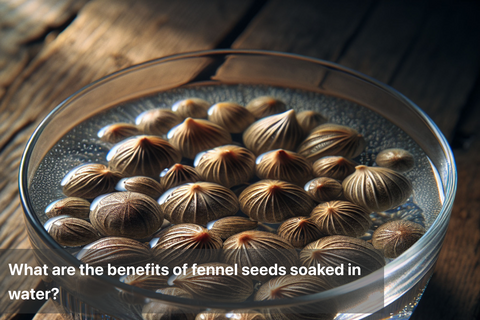
What are poppy seeds and what are their benefits and side effects?
Poppy seeds are small, kidney-shaped seeds that come from the opium poppy (Papaver somniferum). Originating in various regions, they have been utilized in culinary traditions for centuries. You might wonder, what is poppy seed? These seeds are not only recognized for their culinary appeal but also for their nutritional properties. They come in different varieties, including the well-known white poppy seeds, which are often preferred for their mild flavor and delicate texture.
One of the unique aspects of poppy seeds is their versatility. They can be incorporated into a wide range of dishes, from bread and pastries to salads and curries. In fact, you'll find numerous poppy seeds uses within various cuisines, serving not just as a flavor enhancer, but also as a source of essential nutrients.
As someone interested in healthy eating, I appreciate that these seeds pack a punch when it comes to nutrition. They are rich in healthy fats, vitamins, and minerals. Many people, particularly females, can benefit from incorporating poppy seeds into their diets due to their beneficial properties, which may include enhancing digestion and providing relief from stress.
Though poppy seeds offer numerous advantages, it's essential to keep in mind their potential side effects and consume them in moderation.

Nutritional Profile of Poppy Seeds
Nutrient |
Amount |
|---|---|
Calories |
~525 kcal |
Total Fat |
~41 g |
Saturated Fat |
~4 g |
Omega-3 Fatty Acids |
~0.3 g |
Omega-6 Fatty Acids |
~23 g |
Vitamin A |
0 IU |
Vitamin C |
0 mg |
Vitamin E |
~0.6 mg |
Health Benefits of Poppy Seeds
Rich in Essential Nutrients: Poppy seeds are packed with vitamins and minerals, including calcium, iron, magnesium, and zinc, which contribute to healthy bones, improved blood circulation, and better muscle function.
Boosts Heart Health: The high content of healthy fats, particularly polyunsaturated fats (Omega-6), can help lower bad cholesterol levels, reduce inflammation, and support cardiovascular health when consumed in moderation.
Improves Sleep Quality: Poppy seeds contain small amounts of opiates like morphine and codeine, which, when consumed in very small quantities, may help induce sleep and relieve symptoms of insomnia.
Promotes Bone Health: Rich in calcium and magnesium, poppy seeds play a role in maintaining strong bones and teeth, and they may help prevent conditions like osteoporosis.
Supports Digestive Health: Due to their high fiber content (around 19 grams per 100 grams), poppy seeds promote healthy digestion, prevent constipation, and support regular bowel movements.
Potential Side Effects of Poppy Seeds
Contains Trace Amounts of Opiates: Poppy seeds contain trace amounts of opiates like morphine and codeine. While these amounts are generally too small to cause significant effects, consuming large quantities or consuming them from improperly cleaned seeds could lead to mild sedation or drowsiness.
Interference with Medication: Due to the presence of opiates, consuming large amounts of poppy seeds could interfere with certain medications, particularly opioid-based pain relievers, or sedatives.
Skin Irritation or Rashes: Some individuals may be allergic to poppy seeds, leading to symptoms like skin irritation, rashes, or hives. In rare cases, more severe allergic reactions may occur.
Digestive Issues (When Consumed in Excess): Overeating poppy seeds could lead to stomach discomfort or bloating due to their high fiber content. It is best to consume them in moderate quantities.
High-Calorie Content: Weight Gain: Poppy seeds are high in calories and fats. While they provide healthy fats, excessive consumption can lead to unwanted weight gain if not eaten in moderation.

Healthy and Delicious Ways to Add Poppy Seeds to Your Diet
Soups: Add poppy seeds to soups for a mild crunch and flavor. Poppy seeds pair especially well with creamy soups like tomato or lentil-based soups.
Curries and Gravies: Thickening Agent: In Indian and Middle Eastern cuisine, poppy seeds are often ground into a paste and added to curries and gravies to enhance flavor and act as a thickening agent.
Smoothies: Blend poppy seeds into smoothies for an extra boost of fiber and nutrients. A teaspoon or two of poppy seeds can complement fruit smoothies or green smoothies.
Salads and Dressings: Sprinkle poppy seeds on salads for a mild crunch and nutty taste. They pair especially well with leafy greens, fruits, and creamy dressings.
Cereal and Oatmeal: Sprinkle poppy seeds on top of your morning cereal or oatmeal for added crunch and nutritional benefits. They also pair well with yogurt.
Summary
Poppy seeds, small kidney-shaped seeds from the opium poppy, are celebrated for their mild flavor and nutritional benefits. Rich in essential nutrients like calcium, magnesium, and zinc, these seeds promote heart, bone, and digestive health. They are also a good source of polyunsaturated fats, which help reduce inflammation and lower cholesterol. In addition, poppy seeds may improve sleep quality due to their trace amounts of opiates like morphine.
Incorporating poppy seeds into your diet is easy and versatile. They can be used in baked goods, curries, soups, smoothies, salads, and even oatmeal. Their mild, nutty taste enhances dishes while providing an extra boost of fiber and vitamins. In Indian and Middle Eastern cuisine, poppy seeds are often ground into a paste for curries and gravies, acting as both a flavor enhancer and thickening agent.
However, it's important to consume poppy seeds in moderation due to potential side effects. While they offer numerous health benefits, excessive intake may lead to mild sedation, digestive discomfort, or allergic reactions. Additionally, their high-calorie content means overeating could contribute to unwanted weight gain.
This Blog post is an initiative by Lo! Foods, to provide accurate and Nutritionist / Doctor approved information related to Health. Lo! Foods is India's leading brand for Everyday Functional Foods. Foods designed for specific Health conditions or Needs. Lo! Foods also runs India's largest range of Low Carb Healthy Cloud Kitchens, under the brand names of Lo!, ProteinChef, ATH (All Things Healthy) and DiabeSmart.









Leave a comment
Your email address will not be published.